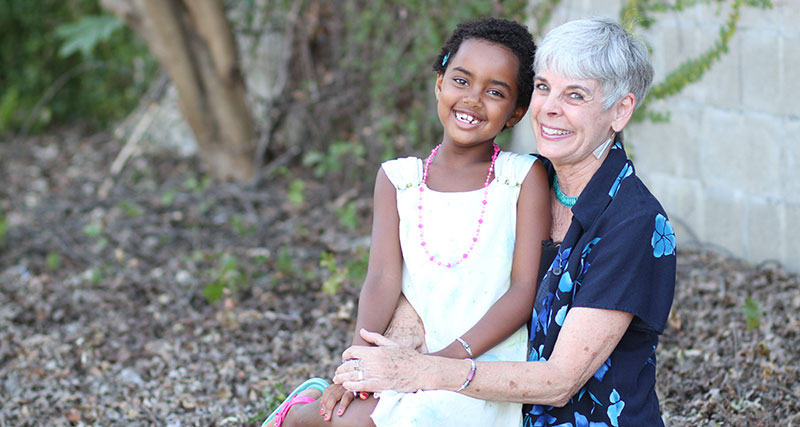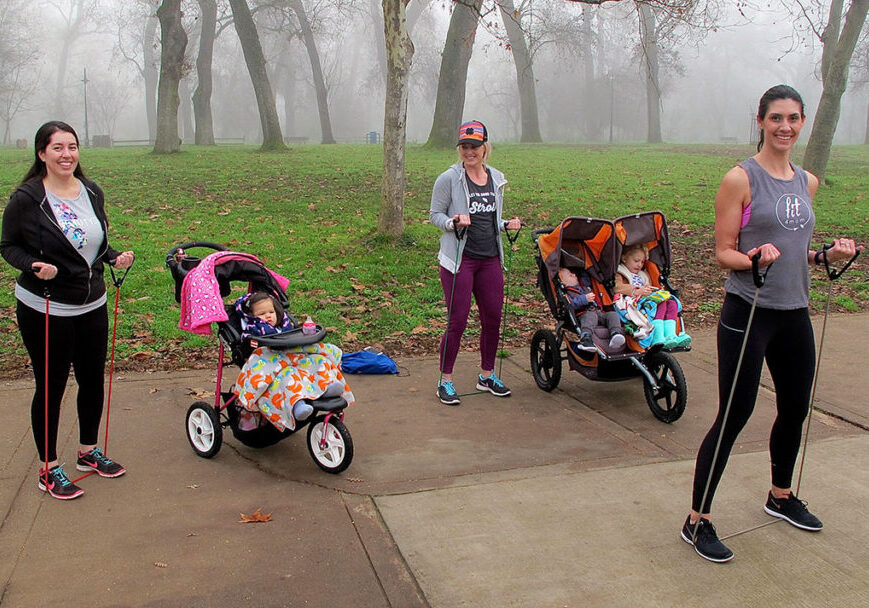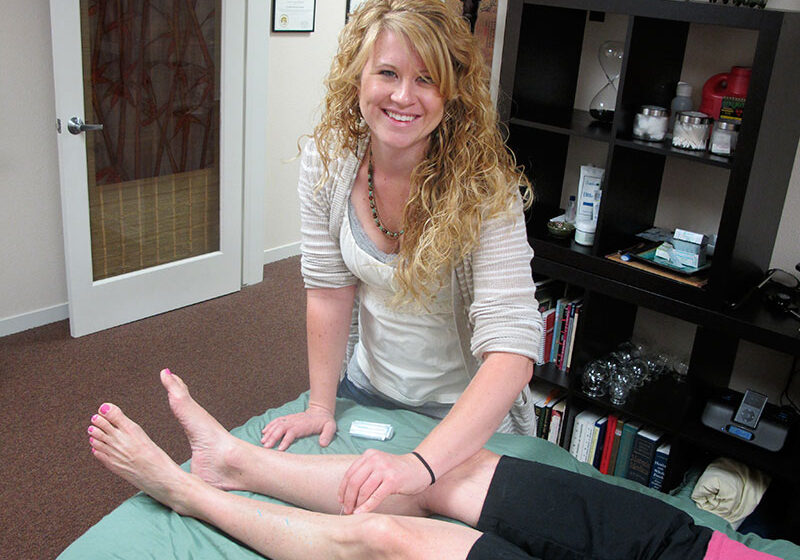In 1981, sociologist Dorothy A. Miller coined the term “sandwich generation” to refer to those who care for their aging parents while also supporting their own children. The definition became so commonly used, that it was included in the 2006 edition of the Merriam-Webster Dictionary.
Pew Research Social and Demographic Trends reported in January 2013 that one out of every eight Americans ages 40 to 60 is raising a child and caring for a parent. Seven to ten million Americans care for their aging parents from a distance.
We are never emotionally prepared to take care of our elderly parents. It stretches our abilities – especially when we have children, teens, or returning adult children for whom we are responsible. Yet as the U.S. population continues to live longer and as women are bearing children later in life, the trend continues to grow.
Stress plays a major role in the lives of those caring for both children and elders. Thinking there is a “right” way to do the task exacerbates inevitable financial, social and emotional stresses. Carol Abaya, researcher, writer and speaker on elder care and the sandwich generation, states that there is no right or wrong way to do child/elder care. She says that every relationship and situation is unique and that there is no magic wand to make a difficult situation better.
Couples or others caught in the sandwich generation need to take steps to be prepared so that life proceeds as smoothly as possible:
• Prepare Legally.
Make sure you have copies of your parents’ necessary legal documents and that they are current. A durable power of attorney is a written authorization designating another to handle your parent’s finances, housing and health care decisions as the need arises. An advance health care directive is a set of written instructions specifying what actions should be taken if they are no longer able to make those decisions due to incapacity. A living will spells out your parents’ wishes concerning end-of-life decisions. A will or trust indicates how to distribute their estate upon their death.
• Practicalities.
There will likely come a time when it’s necessary to take over your parent’s monthly finances, and you’ll need access to financial documents such as bank statements, monthly bills, home and vehicle ownership or rental contracts, investment paperwork, tax documents, etc.
• Prepare logistically.
Find out about services for seniors in the community where your parents live. Visit different levels of available senior housing facilities. Put your parents’ names on waiting lists before it becomes a necessity. Record the names and telephone numbers of one or two of your parents’ neighbors, their doctor/s, and their lawyer; let each know how to contact you.
• Care for yourself.
On airlines, in case of emergency, you are directed to put on your own oxygen mask before helping another. The advice needs to be heeded when caring for parents and children simultaneously. You must take care of yourself first, otherwise you will become ever more exhausted and depleted, and are likely to become increasingly resentful and depressed. If this happens, you are of little use to either your children or parents.
• Define your role.
There is no way you can take care of yourself, your children, your parents and a job, and relate to a significant other, all at the same time. Decide what you are willing and able to do. Make a commitment to yourself and stick to it. Share your commitment with a partner or trusted friend and ask for their support in helping you maintain your boundaries.
• Ask for and accept help.
Caring for children and parents simultaneously is not a one-person job! Use community services. Recruit other family members and friends to assist.
• Take breaks.
Taking a break from the day-to-day care of parents and children revives your enthusiasm for life and allows you to see your situation with some objectivity. Seek adult respite programs. Get a babysitter for the children. Go out to dinner with your mate or a friend. Continue your hobbies. Take a bath. Read a book. Breathe. Discipline yourself to think of things other than your tasks and to-do list.
• Spend time with friends.
While it may seem like a luxury to take time away from family, it is a necessity. Research shows that caregivers who have a social support system experience less illness and depression. If you need to convince yourself it’s okay to go out for coffee or lunch with a friend, think of it as receiving the energy to be a better caregiver.
• Find humor.
Studies show that laughter improves the immune system. Look for things to laugh about with your children and parents. Watch a funny movie. Read the funnies or a humorous book.
• Provide Intergeneration time.
If your parents are able, give them the opportunity to be involved with your children. Depending on their ability, reading, playing board games and taking walks together helps your parents bond with their grandchildren. If your parents live in another community, video chatting online or talking by phone provides connection.
• Accept your emotions.
With the nearly impossible job of caring for both your children and parents, you are likely to experience a range of emotions, sometimes in roller coaster fashion. Know that this is normal. Just when you think you have a handle on life, something may happen to disturb the equilibrium. Seek counseling or medical help if necessary. And know that you are not alone.
You cannot eliminate the stresses of living in the sandwich generation. Preparation, however, makes coping easier.
Posted in: Health & Nutrition
Comment Policy: All viewpoints are welcome, but comments should remain relevant. Personal attacks, profanity, and aggressive behavior are not allowed. No spam, advertising, or promoting of products/services. Please, only use your real name and limit the amount of links submitted in your comment.
You Might Also Like...

Atrial Fibrillation: Take Your Fluttering Heartbeat Seriously
Atrial Fibrillation Take Your Fluttering Heartbeat Seriously When we think of heart conditions, we often associate these thoughts with older people. Although aging does increase the risk of atrial fibrillation […]

Winter Greens – A Delicious Way to Support Your Immune System
Winter Greens Are Immune Boosting Foods After holiday cookies and before Valentine’s Day chocolates, it is time to nourish yourself and your immune system with some fresh veggies. The USDA […]

Pediatrician Q&A with Dr. Zeke (Ezekiel Melquist, MD)
Q: As back-to-school time approaches, many parents dread the first month or so, as many kids get sick in those first few weeks. Why does that happen? A: Each child has […]

Mindful Eating: Helping Your Child Make Healthy Food Choices
Good eating habits begin at home. Choosing mindfully what you feed your family, making healthier choices when eating out, and partnering with your child’s school are several important ways you […]



